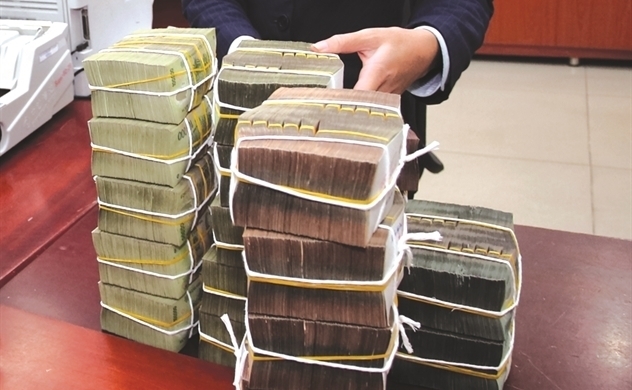Local enterprises plan asset and stock sales as they look to slash debts

Not only real estate, difficulties spread to many economic sectors, causing an increase in the number of businesses going bankrupt or selling themselves. Photo: Quy Hoa
Mr. David Jackson, Colliers Vietnam's General Director, predicted that resort real estate M&A activity would pick up in the coming quarters. The financial market and corporate bonds make it hard for enterprises to raise funds, freezing the real estate market.
Due to the prolonged crisis, several firms chose to sell their assets to survive. Difficulties spread to many economic sectors, causing an increase in the number of businesses going bankrupt or selling themselves.
The total number of newly established and re-operated enterprises decreased by 2% over the same period last year while the number of enterprises withdrawing from the market increased by 25%. This trend may become more complicated in the future, commented Vu Hong Thanh, Chairman of the National Assembly's Economic Committee.
The state budget declined, the trade imbalance was huge, inflation rose, the economy's ability to absorb capital was weak, and monetary and fiscal policy had little effect. These elements predict business sales growth.
This crisis is different from the previous ones. That was the time when brands like P/S toothpaste, Da Lan, Kinh Do, Diana... sold to foreign companies in an active position. M&A deals at that time were all considered with high prices.
At present, many companies are under debt strain and must sell shares at low prices. Mr. Dau Anh Tuan, Deputy General Secretary of the Vietnam Confederation of Commerce and Industry (VCCI), was not optimistic when a good business had to sell its property and transfer a recognized brand after many years.
It took years to establish a generation of competitive domestic firms after this wave. While Vietnamese firms weaken, foreign firms gain competitive advantages. There will be several problems till 2023. Therefore, in the main solutions, the Government stressed that it will continue to examine lowering interest rates, stabilizing lending interest rates, and administering credit to focus on production and business, priority areas, etc. growth and driving force, and capital access solutions exist...
The State Bank of Vietnam cut the operating interest rate for the third time with a reduction of 50 basis points, effective from May 25, creating a basis for interest rates to continue to decrease. In the context of weak economic absorption, lending interest rates must be further reduced to stimulate businesses and people to be willing to borrow more to put into production, business, and consumption. However, many people think that lowering the operating interest rate does not make much sense if the State Bank does not have a solution to increase the money supply in the economy.
According to Dr. Le Xuan Nghia, an economist, since the beginning of the year, the growth of the money supply has been too low, the money turnover is only 0.64 rounds/year. “Lowering the operating interest rate is just a formality, not much meaning. In order to reduce lending interest rates, the State Bank must increase the money supply and pump money into the economy, "said Mr. Nghia. According to this expert, increasing the money supply in the current context is to increase the basic money supply, not deposits, in order to reduce lending interest rates.
Although increasing the money supply base is the most effective solution to lower interest rates, many analysts believe that the State Bank will be very cautious with this option. For example, a representative of the International Monetary Fund (IMF) in Vietnam said that the expectation that the US Federal Reserve (Fed) will stop raising interest rates is uncertain.
The effects of the US's tightening monetary policy are expected to have a bigger and more insidious impact on the Asian region, including Vietnam. The IMF recommends that the State Bank should rely on policy interest rates to curb inflation and avoid pressures on the exchange rate while ensuring the stability of the financial sector when dealing with bottlenecks in the bond market and real estate.

 TIẾNG VIỆT
TIẾNG VIỆT 










_131447820.png)







